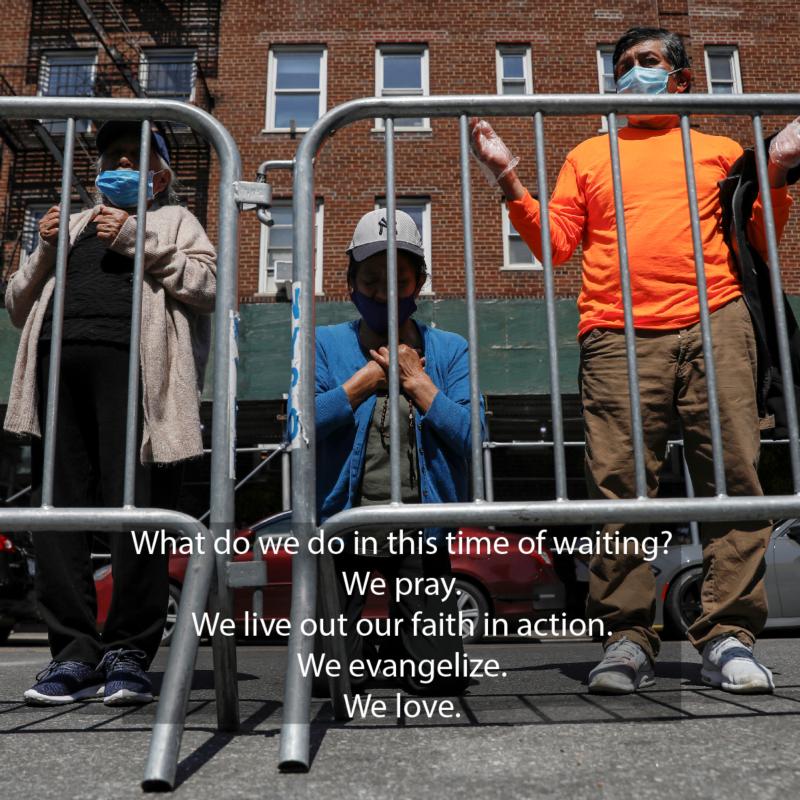
We are waiting. Waiting for what? We don’t really know.
We used to wait in line, on hold, in traffic. We waited with anticipation for dinner with friends, our cousin’s wedding or that big vacation. Now, waiting for a routine cleaning at the dentist office sounds like a luxury.
The thing is, we’ve always been waiting. It’s part of our theology as Catholics, to be people who wait.
It is who we are.
We inherited this legacy from the Old Testament, from the Jewish people who waited. They waited for deliverance. They waited to reunite with their homeland. They waited for the Messiah to return.
And now we wait — for relief, to be rescued, for our Lord to return. Waiting is a holy discipline.
The psalms teach us about waiting. In the original Hebrew there are several different words for “wait.”
There is a waiting that is painful. “Be still before the Lord; wait for him” (Ps 37:7). The Hebrew word here implies to sit in anguish, even writhe as we wait: There is comfort in knowing that God is not afraid of our pain. He doesn’t expect us to have control of our emotions before him. There is an understanding that it is indeed painful to wait.
There is another kind of waiting that is longing. “Our soul waits for the Lord , he is our help and shield” (Ps 33:20). Sometimes we long for God like one who is thirsty longs for water. But there are times when we simply wish we longed for God.
Theologian Meister Eckhart wrote, “The soul must long for God in order to be set aflame by God’s love. But if the soul cannot yet feel the longing, then it must long for the longing. To long for the longing is also from God.” There is an ache and a longing that only God can fill.
Another kind of waiting is to do so eagerly, expectantly as the Hebrew word in this psalm indicates, “Wait for the Lord, take courage; be stouthearted, wait for the Lord!” (Ps 27:14). In this type of waiting, it is as if we are children who know that their parent always saves them. We sit with our hands outstretched, knowing God is coming to help.
And last, we wait with hope. “Surely, I wait for the Lord; who bends down to me and hears my cry” (Ps 40:2). This is a hope that sustains us, gives us strength to move forward. To wait.
Our waiting doesn’t seem as long when we put it into the context of the Israelites in the desert, in exile or waiting for the Messiah.
But what do we do while we wait?
We pray. Just as the psalms, Jesus and all saints have taught us. We “cast all your worries upon him because he cares for you” (1 Pt 5:7).
We live out our faith in action. “Be doers of the word and not hearers only,” St. James reminds us (1:22). Our faith is dead if we simply sit and do not move into action. We do what God has always told us to do, to “care for orphans and widows in their affliction” (Jas 1:27). Caring for others gets us out of our own heads, out of selfishness and connects us with others.
We evangelize. This word seems to frighten people but, really, it just means we share the stories of how God has met us in our need, in our grief and in our waiting. We share our good news. St. Paul writes, “How beautiful are the feet of those who bring good news!” (Rom 10:15). Isn’t this true!?
We love. We love our God, we love our neighbors, we love our enemies. We show great love. We show little love. We love because he first loved us. They will know us by our love.
It is who we are! A people who love.









